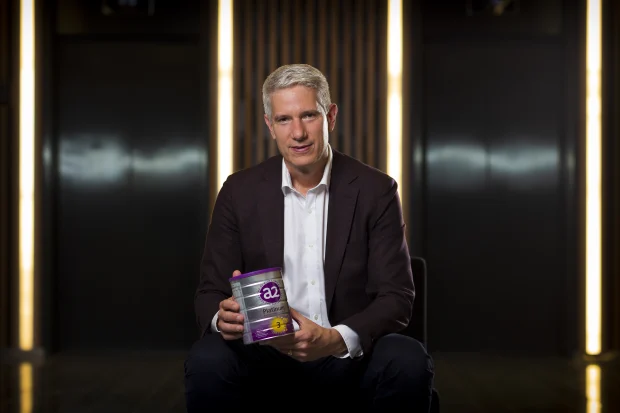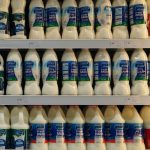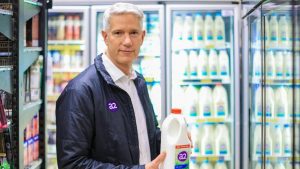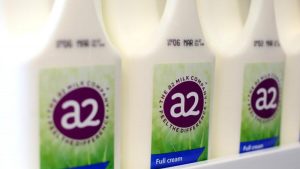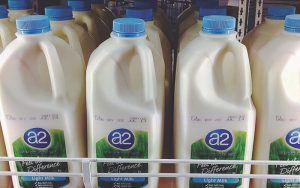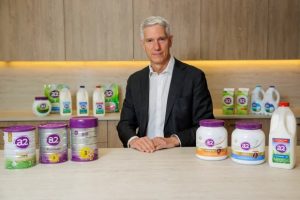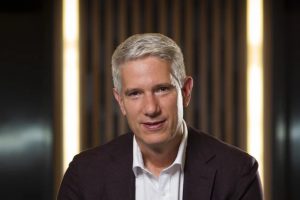
China’s population is expected to shrink further this year, after the number of newborns fell 10 per cent over calendar 2022 and the formula market contracted. Although the Chinese government has sought to implement programs such as tax breaks to slow the falling birth rate in recent years, it has not worked.
Mr Bortolussi told The Australian Financial Review the socio-economic factors that had weighed on China’s birth rate for many years were accentuated by COVID-19, but he hoped for a recovery over the next 12 to 18 months.
“I think there might just be a little up and down around that because of women having trouble falling pregnant post-vaccination or experiencing COVID. I think there’ll be some minor aberrations around that and then hopefully, we’ll get a more fundamental recovery in the birth rate,” he said.
“This 12-month period coming up, we think that the decline in the birth rate would have its most significant impact on the underlying volume and sales in that market.”
China makes up just more than half of the world’s infant formula market, valued at about $28 billion, and generates most of a2 Milk’s sales and earnings.
The cautious outlook in China, and news that there had not been any sales of formula to the US market where it was given temporary access by the government last year, sent shares in the dual-listed company tumbling 61¢, or 8.6 per cent, to $6.49 on Monday. The stock had a major run higher before the results and is still well above its 12-month low of $3.90 hit last May.
Mr Bortolussi’s comments came after the company revealed a solid result, posting a 22 per cent gain in net profit to $NZ68.5 million in the first half of fiscal 2023, as its turnaround gained traction and its market share for baby formula in China grew.
Sales of both fresh milk and formula jumped 18.6 per cent to $NZ783.3 million, boosted by $NZ35 million in foreign exchange gains.
Formula sales jumped 18 per cent overall, while liquid milk sales in Australia/New Zealand and USA rose 5.6 per cent and 62 per cent, respectively.
The Kiwi fresh milk and formula player’s China sales grew 18 per cent, despite the overall market falling 12.5 per cent, driven by its China label product into mother and baby stores and direct online channels.
Earnings before interest, tax, depreciation, and amortisation (EBITDA) were 10.5 per cent higher at $NZ107.8 million, with an EBITDA to sales margin of 13.8 per cent.
This was dragged lower because of fewer formula sales to Daigou resellers in Australia/New Zealand, which was offset by more selling into the cross border e-commerce chanel (CBEC). Overall, sales and earnings in Australia/New Zealand were down steep double digits.
Mr Bortolussi reaffirmed earlier sales guidance for full-year 2023 growth of low double-digits, supported by China-label formula and liquid milk sales in Australia/New Zealand and the US. English-label formula revenue is expected to be broadly in line with fiscal 2022.
Full-year gross margins are likely to be slightly higher than in 2022, with higher costs for milk, ingredients and packaging being offset by price increases and cost-cutting. EBITDA margin as a percentage of sales is tipped to be flat at 13.6 per cent, when prior guidance was for a “modest improvement”.
Site inspection
On Friday, a2 Milk flagged that Chinese authorities would this week start the inspection of its manufacturing partner Synlait Milk’s facility; a step towards securing SAMR registration under the new national food safety standards for infant formula.
Mr Bortolussi was hopeful of getting the green tick in the fourth quarter, but warned there could be bumps along the road as the market changed over to this new system. The company ramped up tin production, with inventory now at $NZ182 million to build stock ahead of the deadline this week.
Citi analyst Sam Teeger said in a note that a2 Milk “seems to be doing a reasonable job executing in challenging market conditions in China; however, the Australian performance is lagging”.
Mr Bortolussi said his plan to double down on China was deliberate that and product innovation, especially in China label, was key in a market that was still highly fragmented.
Working in a2 Milk’s favour is market consolidation with Abbott Laboratories, which recently flagged that it was exiting the China market, while Friesland Campina was also scaling down.
A2 Milk has not sold any tins yet in the US where a2 Milk is seeking a permeant path into the world’s second-biggest formula market.
Mr Bortolussi said the US was “not going to change the game” for the global business and the main focus remained China, along with growing the brand line into the adult category, given the large ageing population.
Accelerating the path to profitability in the US by 2025-26 remains a key strategic priority in its fresh milk business. The company has recently commenced a trial in the US for a protein and collagen nutritional powder range on Amazon, and in March plans to launch a2 Milk Grassfed fresh milk.
He noted other new product launches in the past six months include lactose-free milk in Australia, where it already has 12 per cent market share, and China label a2 Nutrition for Mothers.
Mr Bortolussi stuck with his longer-term goals of growing sales to $NZ2 billion ($1.8 billion) and targeting mid-teens EBITDA margins over time.
